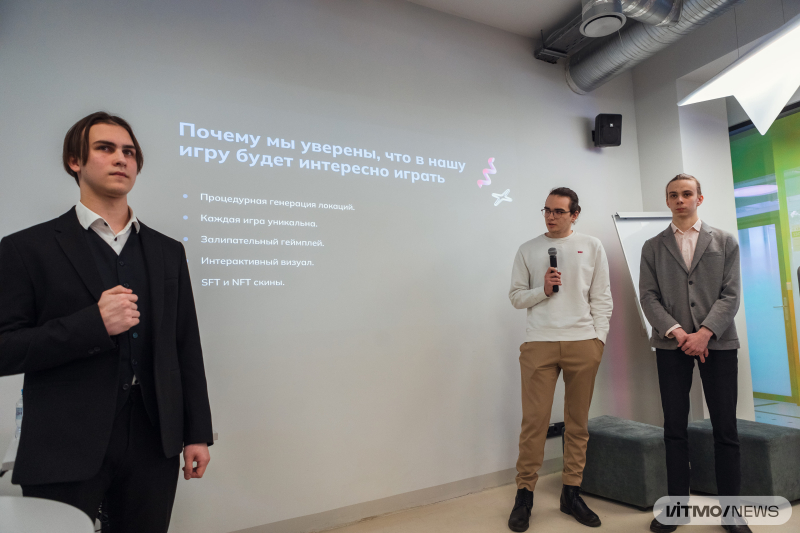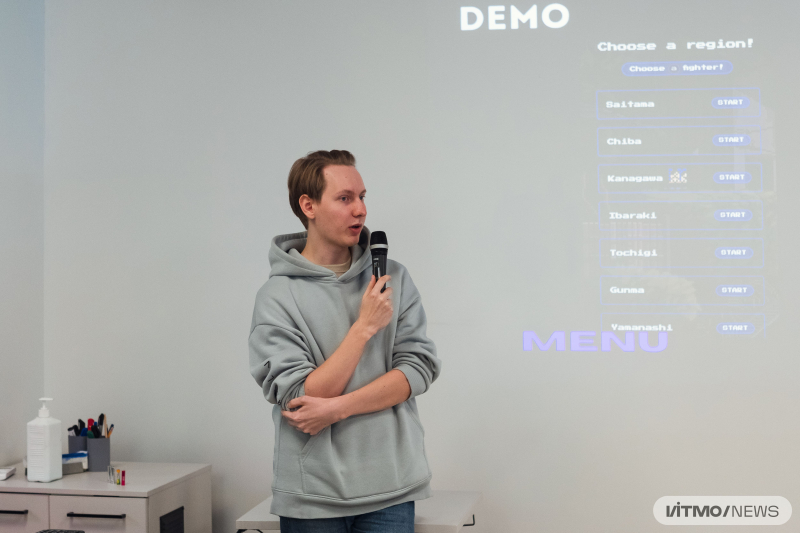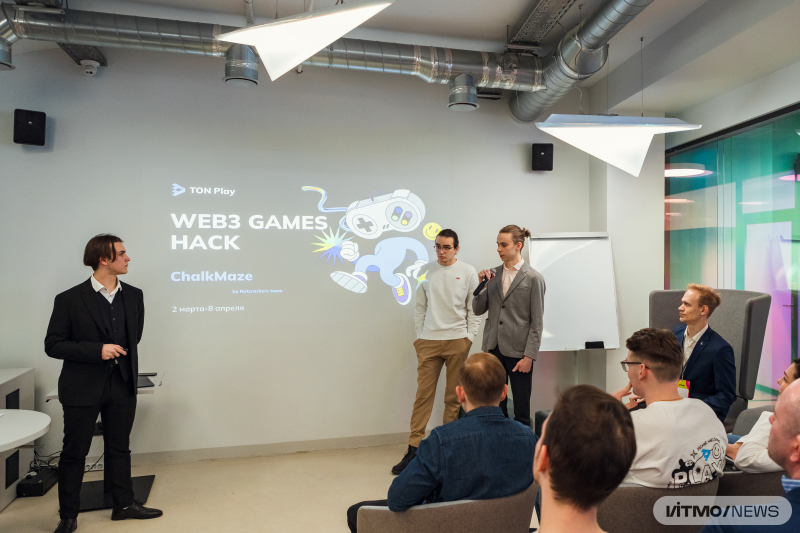Web3 games Hack is a hackathon organized by ITMO in collaboration with the TON Play gaming platform, the university’s alumni community, the Bored Consortium crypto-oriented student club, and the economics student club of Peter the Great St. Petersburg State Polytechnic University.
The hackathon aims to support the developers of Web3 games, which are based on a decentralized blockchain architecture. Thanks to this, players can own NFT, cryptocurrency, and other digital assets, and exchange them on decentralized marketplaces without any intermediaries via smart contracts. This type of games is rightfully called “play to earn.”
Anyone capable of developing games on HTML5 or Unity, designing interfaces, or creating 2D/3D objects could take part in the competition. Participants could sign up as teams or as individuals who would form a team with other contestants at the event.
Before the hackathon, the participants were briefed by Daria Novikova, the CPO of TON Play, who talked about the platform and its connection to the GameFi protocol. Moreover, she explained what kinds of games would be popular and how to develop them. Additionally, participating students attended online courses on aspects of game development in March and April: they learned to compile design documentation and package their products to attract investments, eventually developing prototypes of their games guided by expert mentors.
Read also:
Hackathon To Develop New Skills for Yandex’s Virtual Assistant Concludes at ITMO
Only five out of twelve teams made it to the finals and got to present their prototypes to representatives of TON Play at the IT Conf 2.0 conference, held on April 8 at ITMO. The results were revealed on April 11: the first place was shared between team Nutrackers (19 points) and team Valhalla games (17 points). Both teams will get to publish their games on TON Play, with Nutrackers taking home $1,500 and Valhalla games – $500.
Team Nutrackers (Maksim Isaev, Nikolay Vasilyev, and Kirill Kirsanov, Information Technologies and Programming Faculty) presented ChalkMaze, a game where players hunt for treasure in a labyrinthine maze marking their route with a piece of chalk. However, if the chalk runs out before they manage to locate the treasure, the game’s over. It’s not possible to try the same route twice either because the locations are procedurally generated anew every time. Players can also personalize their pieces of chalk with SFT and NFT skins, making it look like a racing car or an ambulance.

Team Nutcrackers (from left to right: Kirill Kirsanov, Nikolay Vasilyev and Maksim Isaev) present ChalkMaze. Credit: Dmitry Grigoryev / ITMO.NEWS
“Our team already had some experience with TON Play-related hackathons, but what really got us to join this one was its focus on game development. Of course, we primarily wanted to learn how to use this platform and its tools. Working with a combination of Unity and Webgl that can be launched via Telegram Web was fascinating,” shared Maksim Isaev, one of the game’s developers and a first-year student at ITMO’s Information Technologies and Programming Faculty. “In the future, we will organize community events, further develop the game’s design, and create new single-player game modes. We also plan to add in a multiplayer option so that players could bet on whoever finds the treasure first, with the winner then taking the entire betting pool. There will also be alternative game modes like capture the flag or king of the hill.”
Band Beat is a rhythm game with a pixel art-based style created by the sizeable team of Valhalla games, which consists of the product owner Matvey Fadeev, third-year students of ITMO’s Information Technologies and Programming Faculty Anfrey Goncharov, Nikita Sorokin, Timur Smirnov, Anna Kosten, Daria Donina, and a third-year student of the first Moscow Educational Complex, Arina Kazakova. In the game, the players get to combat groups of enemies on the bright pixel streets of Japan. The only way to win is by clicking on a circle that only appears for a short time in the bottom part of the screen. If you miss the circle, your character loses some of their health points. At the end of the game, the players can see their score and positions on the leaderboard. They can also get SFT and NFT tokens by winning in the battle royale game mode or by buying new characters.

Matvey Fadeev from the Valhalla games talks about Band Beat. Credit: Dmitry Grigoryev / ITMO.NEWS
“We decided to take part in the hackathon because it is a great way to creatively showcase our game development skills. We worked as a team to make a complete product over a short period of time and receive useful feedback from industry experts,” said Matvey Fadeev, one of the developers. “In the future, we want to improve the game’s graphic and sound design, add new level and character visuals, and expand its functionality. We also plan to launch marketing campaigns in order to attract new players. Right now, for example, you can text “/promo” to @bandbeat_bot to access an exclusive contest.”






